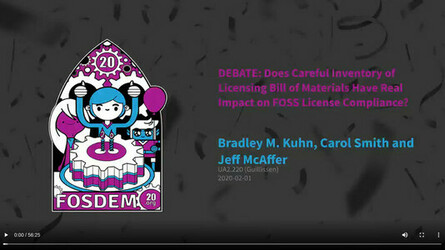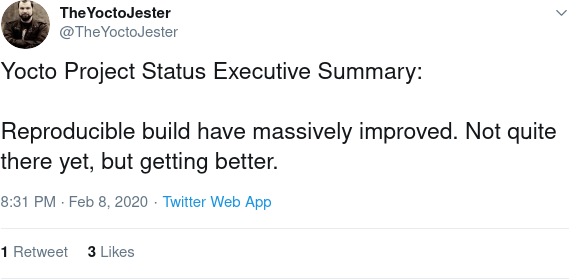Review:
The Oathbound, by Mercedes Lackey
| Series: |
Vows and Honor #1 |
| Publisher: |
DAW |
| Copyright: |
July 1988 |
| ISBN: |
0-88677-414-4 |
| Format: |
Mass market |
| Pages: |
302 |
This book warrants a bit of explanation.
Before
Arrows of the Queen, before
Valdemar (at least in terms of publication dates), came Tarma and Kethry
short stories. I don't know if they were always intended to be set in the
same world as Valdemar; if not, they were quickly included. But they came
from another part of the world and a slightly different sub-genre. While
the first two Valdemar trilogies were largely coming-of-age fantasy, Tarma
and Kethry are itinerant sword-and-sorcery adventures featuring two women
with a soul bond: the conventionally attractive, aristocratic mage Kethry,
and the celibate, goddess-sworn swordswoman Tarma. Their first story was
published, appropriately, in Marion Zimmer Bradley's
Swords and
Sorceress III.
This is the first book about Tarma and Kethry. It's a fix-up novel:
shorter stories, bridged and re-edited, and glued together with some
additional material. And it does
not contain the first Tarma and
Kethry story.
As mentioned in my earlier Valdemar reviews, this is a re-read, but it's
been something like twenty years since I previously read the whole
Valdemar corpus (as it was at the time; I'll probably re-read everything I
have on hand, but it's grown considerably, and I may not chase down the
rest of it). One of the things I'd forgotten is how oddly, from a novel
reader's perspective, the Tarma and Kethry stories were collected.
Knowing what I know now about publishing, I assume
Swords and
Sorceress III was still in print at the time
The Oathbound was
published, or the rights weren't available for some other reason, so their
first story had to be omitted. Whatever the reason,
The Oathbound
starts with a jarring gap that's no less irritating in this re-read than
it was originally.
Also as is becoming typical for this series, I remembered a lot more
world-building and character development than is actually present in at
least this first book. In this case, I strongly suspect most of that
characterization is in
Oathbreakers, which I remember as being more
of a coherent single story and less of a fix-up of puzzle and adventure
stories with scant time for character growth. I'll be able to test my
memory shortly.
What we do get is Kethry's reconciliation of her past, a brief look at the
Shin'a'in and the depth of Tarma and Kethry's mutual oath (unfortunately
told more than shown), the introduction of Warrl (again, a relationship
that will grow a great deal more depth later), and then some typical sword
and sorcery episodes: a locked room mystery, a caravan guard adventure
about which I'll have more to say later, and two rather unpleasant
encounters with a demon. The material is bridged enough that it has a
vague novel-like shape, but the bones of the underlying short stories are
pretty obvious. One can tell this isn't really a novel even without the
tell of a narrative recap in later chapters of events that you'd just read
earlier in the same book.
What we also get is rather a lot of rape, and one episode of seriously
unpleasant "justice."
A drawback of early Lackey is that her villains are pure evil. My not
entirely trustworthy memory tells me that this moderates over time, but
early stories tend to feature villains completely devoid of redeeming
qualities. In this book alone one gets to choose between the rapist
pedophile, the rapist lord, the rapist bandit, and the rapist demon who
had been doing extensive research in Jack Chalker novels. You'll notice a
theme. Most of the rape happens off camera, but I was still thoroughly
sick of it by the end of the book. This was already a cliched motivation
tactic when these stories were written.
Worse, as with the end of
Arrow's
Flight, the protagonists don't seem to be above a bit of "turnabout is
fair play." When you're dealing with rape as a primary plot motivation,
that goes about as badly as you might expect. The final episode here
involves a confrontation that Tarma and Kethry brought entirely on
themselves through some rather despicable actions, and from which they
should have taken a lesson about why civilized societies have criminal
justice systems. Unfortunately, despite an ethical priest who is mostly
played for mild amusement, no one in the book seems to have drawn that
rather obvious conclusion. This, too, I recall as getting better as the
series goes along and Lackey matures as a writer, but that only helps
marginally with the early books.
Some time after the publication of
The Oathbound and
Oathbreakers, something (presumably the rights situation) changed.
Oathblood was published in 1998 and includes not only the first
Tarma and Kethry story but also several of the short stories that make up
this book, in (I assume) something closer to their original form. That
makes
The Oathbound somewhat pointless and entirely skippable. I
re-read it first because that's how I first approached the series many
years ago, and (to be honest) because I'd forgotten how much was reprinted
in
Oathblood. I'd advise a new reader to skip it entirely, start
with the short stories in
Oathblood, and then read
Oathbreakers before reading the final novella. You'd miss the
demon stories, but that's probably for the best.
I'm complaining a lot about this book, but that's partly from familiarity.
If you can stomach the rape and one stunningly unethical protagonist
decision, the stories that make it up are solid and enjoyable, and the
dynamic between Tarma and Kethry is always a lot of fun (and gets even
better when Warrl is added to the mix). I think my favorite was the
locked room mystery. It's significantly spoiled by knowing the ending,
and it has little deeper significance, but it's a classic sort
unembellished, unapologetic sword-and-sorcery tale that's hard to come by
in books. But since it too is reprinted (in a better form) in
Oathblood, there's no point in reading it here.
Followed by
Oathbreakers.
Rating: 6 out of 10
 I was shocked to learn today that Richard Stallman has been reinstated as a
member of the board of the Free Software Foundation. I think this is plain
inappropriate, but I cannot see how anyone who doesn t think that could fail
to see the reinstatement as counterproductive. As Bradley M. Kuhn put
it,
I was shocked to learn today that Richard Stallman has been reinstated as a
member of the board of the Free Software Foundation. I think this is plain
inappropriate, but I cannot see how anyone who doesn t think that could fail
to see the reinstatement as counterproductive. As Bradley M. Kuhn put
it,










 Hi,
I am in two minds of what to write about Doha. My job has been vastly simplified by a friend when he shared with me
Hi,
I am in two minds of what to write about Doha. My job has been vastly simplified by a friend when he shared with me 
 Bradley White from the upstream
Bradley White from the upstream 

 Debconf15 started yesterday and as expected, talk rooms are always fully crowded! I had to stand up in a couple of talks and I watched another couple of them from outside thanks to
Debconf15 started yesterday and as expected, talk rooms are always fully crowded! I had to stand up in a couple of talks and I watched another couple of them from outside thanks to  This year, on top of the many excellent contributed talks, BoFs, and other
events always part of DebConf (some of which have already been announced) we
are excited to have confirmed the following keynote speakers.
During the Open Weekend (Saturday, August 15th and Sunday, August 16th), we
will have keynotes delivered by:
This year, on top of the many excellent contributed talks, BoFs, and other
events always part of DebConf (some of which have already been announced) we
are excited to have confirmed the following keynote speakers.
During the Open Weekend (Saturday, August 15th and Sunday, August 16th), we
will have keynotes delivered by:
 When I was preparing my blog entry about
When I was preparing my blog entry about